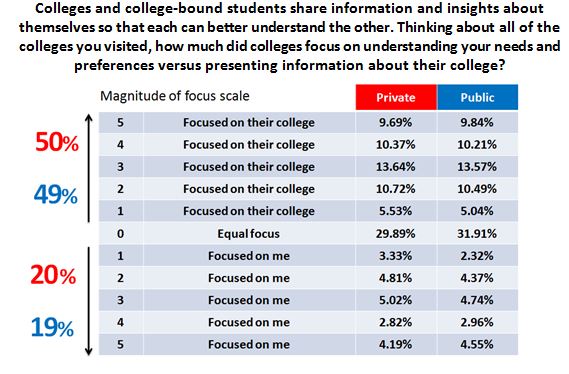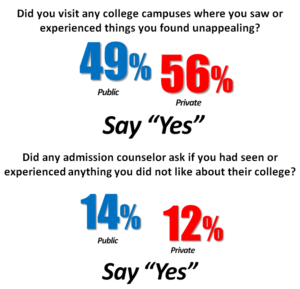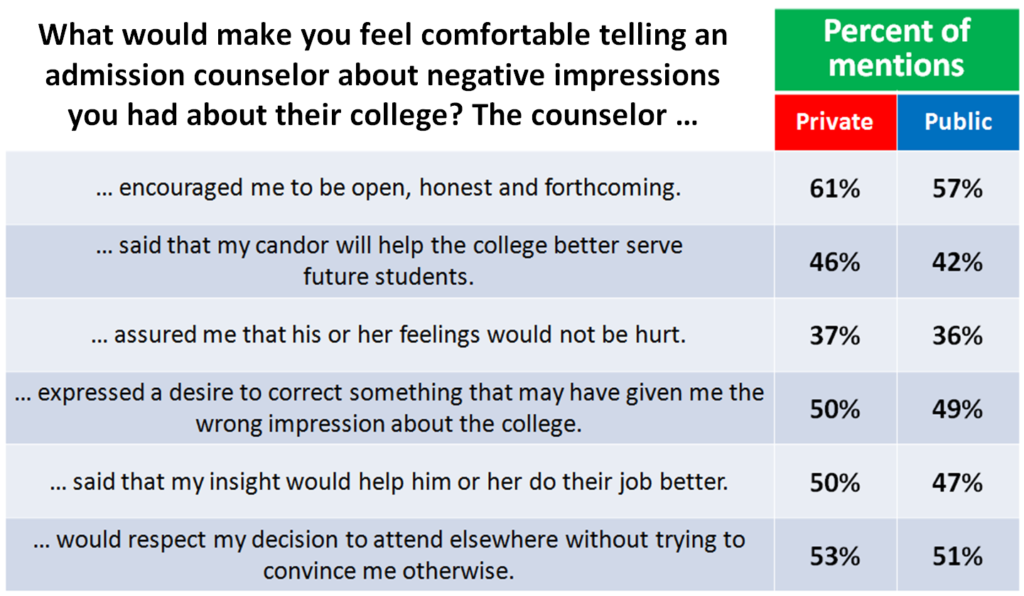Do the students you are recruiting have “commitment issues?” As in, telling you they will attend an event but actually being a “no-show,” or promising you that the necessary paperwork is on the way when it actually never arrives?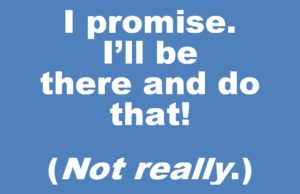
Whether it’s completing an application, sending in transcripts, attending an open house or taking a campus visit, students frequently make promises to colleges that they don’t keep. With our latest co-sponsored study, “Hidden Influences: Revealing the unspoken perceptions that perspective students have about your college and why it matters in your ability to grow and control your enrollment,” we tackled the question of why students will make and, then break, a commitment to a college.
The 18,000 college-bound students participating in the study frankly admitted that broken promises are part of the college shopping process. In fact, 30% of students say they will make a promise that they know they are unlikely to keep.
And they are equally honest about why they tell a college one thing and do another with 79% attributing their broken promises to wanting to “keep my options open.” Another common reason, shared by 61% of students nationwide, is that they “thought there might be a possibility of keeping the commitment.” For the most part, the wide-ranging responses demonstrate that most students will seek the path of least resistance. What they do not want is anything resembling a confrontation with a college representative.
Recommended Strategy: Change the way you ask!
Not only are missed deadlines and broken commitments frustrating to college admission teams, they are confusing. One admission counselor recently summed it up like this, “When a prospective student doesn’t show for an event or complete paperwork on time, I don’t know what that means. Are they no longer interested in us? Did they forget? Is there some other issue at play?” 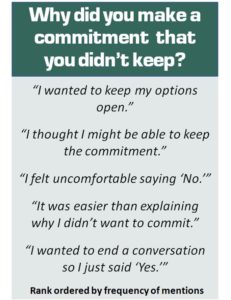
Typically, admission counselors ask prospective students binary questions such as:
- “Are you going to make it to the open house on Saturday?”
- “Will you be able to get those forms to us by next Wednesday?”
To the student a “yes” answer means “discussion closed” whereas a “no” could lead to an extended discussion, which in their minds, means a confrontation.
Instead, use an open approach:
- “How likely are you to make it to the campus visit on Saturday?”
- “So, on a scale of 1 to 5, how likely are you to come to our open house next week?”
- “Is there anything getting in the way of you completing your application by Wednesday?”
This technique is far more likely to uncover any barriers that might be keeping the student from attending your event such as a scheduling conflict or transportation issues. Barriers you may be able to help the student overcome once they are identified. The same techniques can be used to qualify any commitment you are asking of the student and can be used by any member of your team. And, this technique can be integrated into your email and text communications as well.
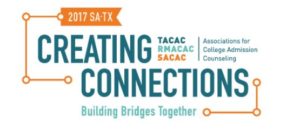 Join us for our presentation of the “Hidden Influences” study on Monday, April 24 (9:45 am) at the TACAC/RMACAC/SACAC Super Conference in San Antonio. Bob Longmire, and study co-sponsors Jeffrey Fuller, University of Houston, and Troy Johnson, University of Texas – Arlington, will share their unique insights on the data and the best practices they have uncovered.
Join us for our presentation of the “Hidden Influences” study on Monday, April 24 (9:45 am) at the TACAC/RMACAC/SACAC Super Conference in San Antonio. Bob Longmire, and study co-sponsors Jeffrey Fuller, University of Houston, and Troy Johnson, University of Texas – Arlington, will share their unique insights on the data and the best practices they have uncovered.
We are preparing to launch our next study!
Each year our national co-sponsored studies attract even more colleges that want to “get in” on the new and different insights we give them about their prospective students and students nationwide. If you’d like information about the topic of our next study, and the benefits you receive as a co-sponsor, be sure to CLICK HERE now to be alerted soon when we put together our next group of co-sponsors.
You can also CLICK HERE to receive an advance copy of the Hidden Influence study report prior to its national release.
Continue the conversation on Twitter @LongmireCo. Be sure to Subscribe to Versions of Conversion today so you don’t miss any of this highly-valuable information.
 Rick Montgomery is as an Enrollment Strategist at Longmire and Company. With over 20 years in higher education marketing, he brings an innovative and dynamic approach to helping colleges and universities meet their enrollment goals. Rick can be reached at 913/492.1265 x.708 or via email at rmontgomery@longmire-co.com.
Rick Montgomery is as an Enrollment Strategist at Longmire and Company. With over 20 years in higher education marketing, he brings an innovative and dynamic approach to helping colleges and universities meet their enrollment goals. Rick can be reached at 913/492.1265 x.708 or via email at rmontgomery@longmire-co.com.
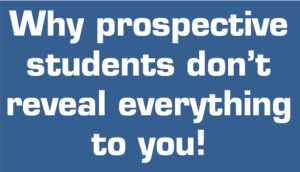
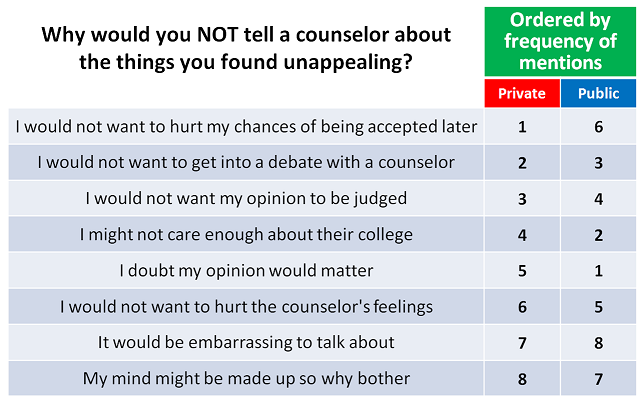

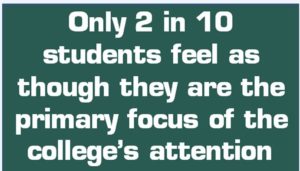 matters in your ability to grow and control enrollment,” we asked over 18,000 college-bound students whether they felt the colleges they considered were more focused on understanding their needs and preferences or more focused on presenting information about their institutions.
matters in your ability to grow and control enrollment,” we asked over 18,000 college-bound students whether they felt the colleges they considered were more focused on understanding their needs and preferences or more focused on presenting information about their institutions.